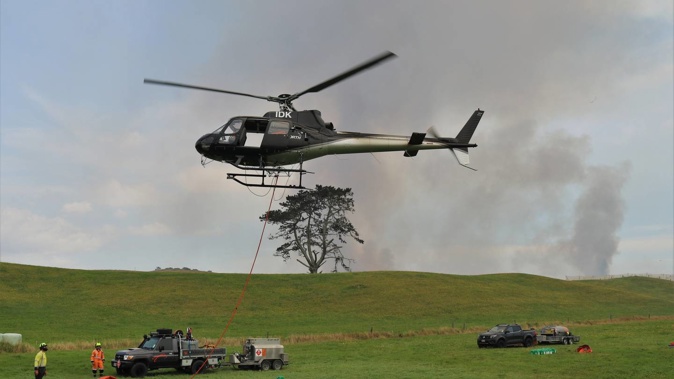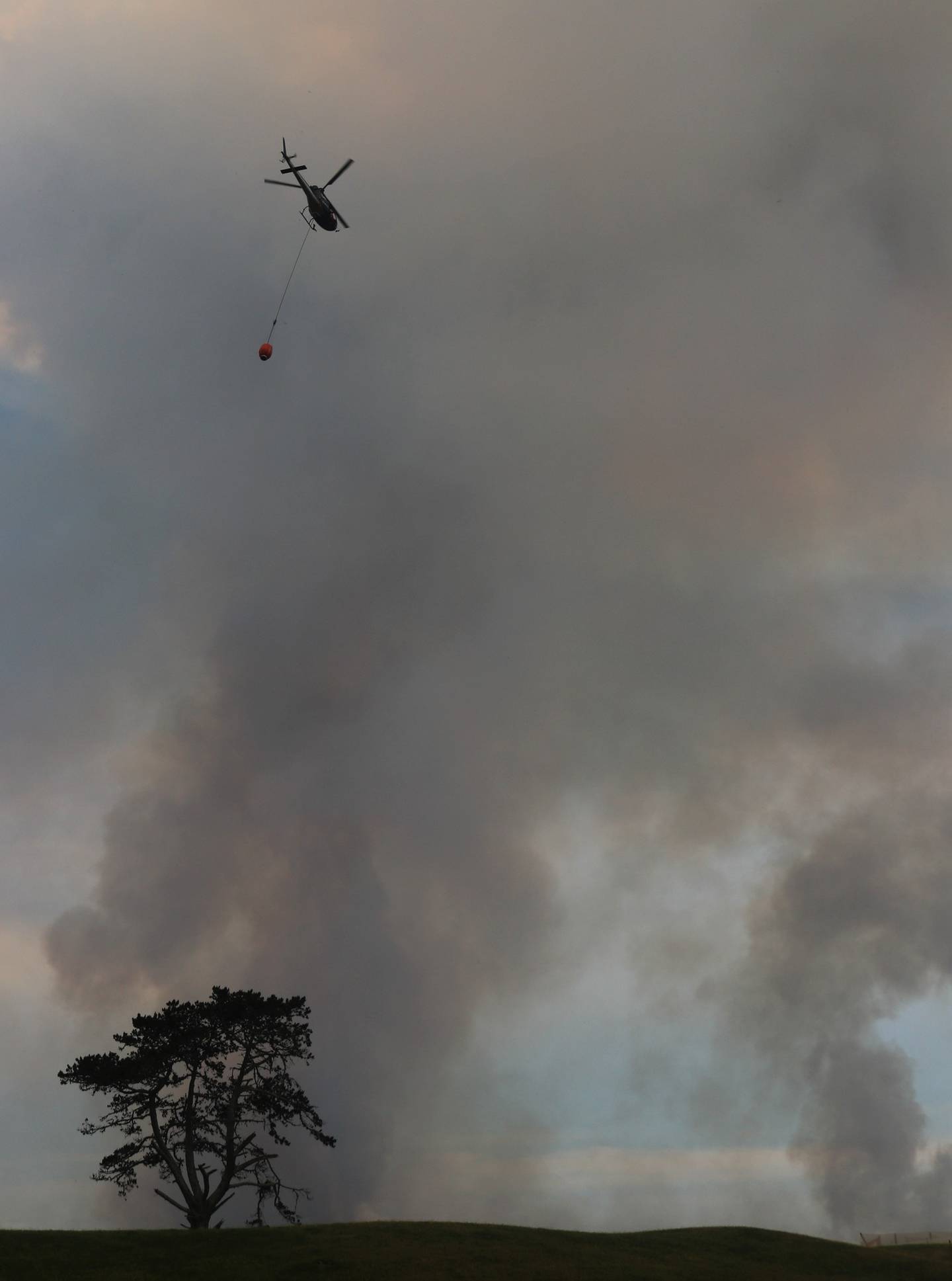
Far North firefighters are bracing themselves for treacherous conditions this afternoon as they battle to save an estimated 50 homes at Kaimaumau from the biggest blaze to hit the region in more than a decade.
Eleven helicopters are trying to bring the 2000ha fire under control before the wind is expected to pick up between 3 and 4pm today.
That's likely to be the make-or-break time for the settlement next to Rangaunu Harbour, north of Kaitaia.
Bulldozers were used this morning to clear a 15-year-old firebreak around the settlement.
Firefighters then planned to cut a second firebreak closer to the houses.
About 30 families were evacuated on Sunday evening. As of this morning the occupants of two homes were refusing to leave.
The fire is in a Department of Conservation reserve bordered to the west and north by avocado orchards and by the settlement in the south.

The fire has spread across an estimated 2000ha of Kaimaumau wetland. Photo / Supplied
The reserve protects the most significant wetland remaining in Northland and is home to a number of threatened species.
Fire and Emergency NZ Northland manager Wipari Henwood said the fire started on Saturday afternoon off Norton Rd, between Waiharara and Kaimaumau.
Seven helicopters and up to 40 firefighters had the blaze under control by noon on Sunday, when it had covered an area of roughly 250ha.
However, the fire ''blew out'' later that afternoon and breached a trigger point about 7km north of Kaimaumau which prompted FENZ, Civil Defence and police to call for an evacuation.
Overnight it had expanded from about 600ha to 2000ha.
About 30 families were staying at Waiharara School. Ngāi Takoto had also offered the use of its marae.
This afternoon's events would determine whether the evacuees could return home tonight.
Locals had successfully enacted their own emergency response plan, Henwood said.
The fire was currently burning around both sides of Lake Waikaramu and could reach Kaimaumau Rd, as it did during the last major fire in the area in 2009-10.
FENZ Northland District Manager Wipari Henwood spoke about FENZ's ongoing efforts regarding the Waiharara fire. Video / FENZ
One helicopter was constantly in the air near the settlement dousing spot fires.
A structure team had been brought in from Whangārei to assess and protect the houses.
Ironically firefighters were being hampered by one of the wettest springs in recent years, which had turned the area into an impassable swamp.
That meant the area could not be accessed by fire trucks or ground crews.

A helicopter is silhouetted against columns of smoke rising from the Kaimaumau fire. Photo / Peter de Graaf
The fire was burning ''straight across the top'' of dense scrub, grass and mānuka.
Henwood said the ''number-one method'' for fighting large vegetation fires was a combined attack from the air and by ground crews.
"But we can't do that in this case. Instead, we're playing cat and mouse. It's two steps forward and one step back.''
It has been reported the fire was started by a farm burnoff.
Henwood said he could not confirm or deny if that was the cause until an investigation was carried out.
The last major fire in the area, in 2009-10, took seven weeks to put out.
That was because the fire spread into underground peat where it was extremely difficult to reach.
He said there were initial concerns that could happen again, but it was now not thought to be unlikely because the water table was so high the peat could not ignite.
A helicopter with a thermal camera was being used, however, to check for underground fires.
The Asthma and Respiratory Foundation NZ (ARFNZ) is urging anyone with a respiratory condition who has been evacuated from the Kaimaumau area to be careful about smoke, and to stay indoors as far as possible.
Smoke from fires can worsen existing respiratory conditions and cause burning eyes, sore throats and coughing.
"Smoke is a major trigger for asthma, as it is effectively tiny particles entering the throat and lungs and causing irritation," said Joanna Turner, ARFNZ research and education.
"This can have severe effects for those with respiratory illnesses like asthma, bronchitis, or COPD [chronic inflammatory lung disease], with children and the elderly being among those most at risk of unexpected flare-ups."
ARFNZ advices people in the Far North to stay indoors and keep doors and windows closed until the smoke clears, especially with the strong winds blowing in the area today.
Take your Radio, Podcasts and Music with you









